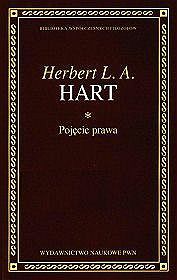What do you think?
Rate this book


412 pages, Hardcover
First published January 1, 1961
We labour under two connected handicaps whenever we seek to regulate…by means of general standards…The first is our relative ignorance of fact: the second is our relative indeterminacy of aim. If the world in which we live were characterized only by a finite number of features, and these together with all the modes in which they could combine were known to us, then provision could be made in advance for every possibility. Everything could be known, and for everything, since it could be known, something could be done and specified in advance by rule. This would be a world fit for ‘mechanical’ jurisprudence. Plainly this world is not our world…(Are there any true formalists today? Not as far as I can tell, but it does seem to be the way most practitioners of the law think - not to mention the man on the Clapham omnibus. And apparently the late Justice Scalia used it as part of his defense of originalism.)